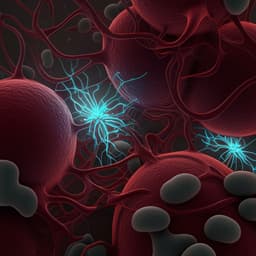
Medicine and Health
Akt is essential to induce NADPH-dependent NETosis and to switch the neutrophil death to apoptosis
D. N. Douda, L. Yip, et al.
Discover how the research conducted by David N. Douda, Lily Yip, Meraj A. Khan, Hartmut Grasemann, and Nades Palaniyar reveals the pivotal role of Akt in regulating the balance between neutrophil death through NETosis and apoptosis, shedding light on the inflammatory response in various diseases.
~3 min • Beginner • English
Related Publications
Explore these studies to deepen your understanding of the subject.







